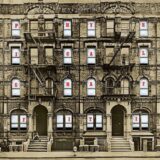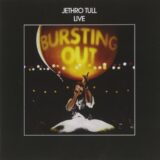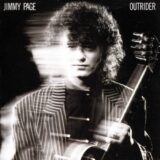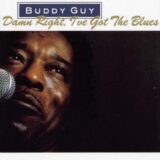5 Stars

Audio CD (paid link)
Genesis formed in early 1967 out of a couple of bands that met at public school, Charterhouse. (In England, the posh expensive schools are called public schools, which has always puzzled this dog. They certainly were not public as they all cost a fortune to attend.) They recorded their first album “Genesis to Revelation” and released it in 1969. That was before the band had even played before a live audience. That by itself is an amazingly long incubation period. They also already had a change of drummers by that time, Chris Stewart left and John Silver (great name for a drummer) came in. This album hardly caused a ripple in record stores around the country and is unrecognizable as anything Genesis were to do after this point.
A re-think was in order. It was decided that drummer Silver was unsuitable. Out with him and in came John Mayhew. They all de-camped to a conveniently empty cottage just outside Dorking to work on their sound and a possible stage show. Eventually, Tony Stratton Smith signed them to his new Charisma label, which on the strength of watching one dodgy rehearsal and one badly recorded demo tape, must be one of the most inspired signings in the history of rock ‘n’ roll. The album Trespass was recorded and the band began to gig. However, before the album was released, disaster stuck.
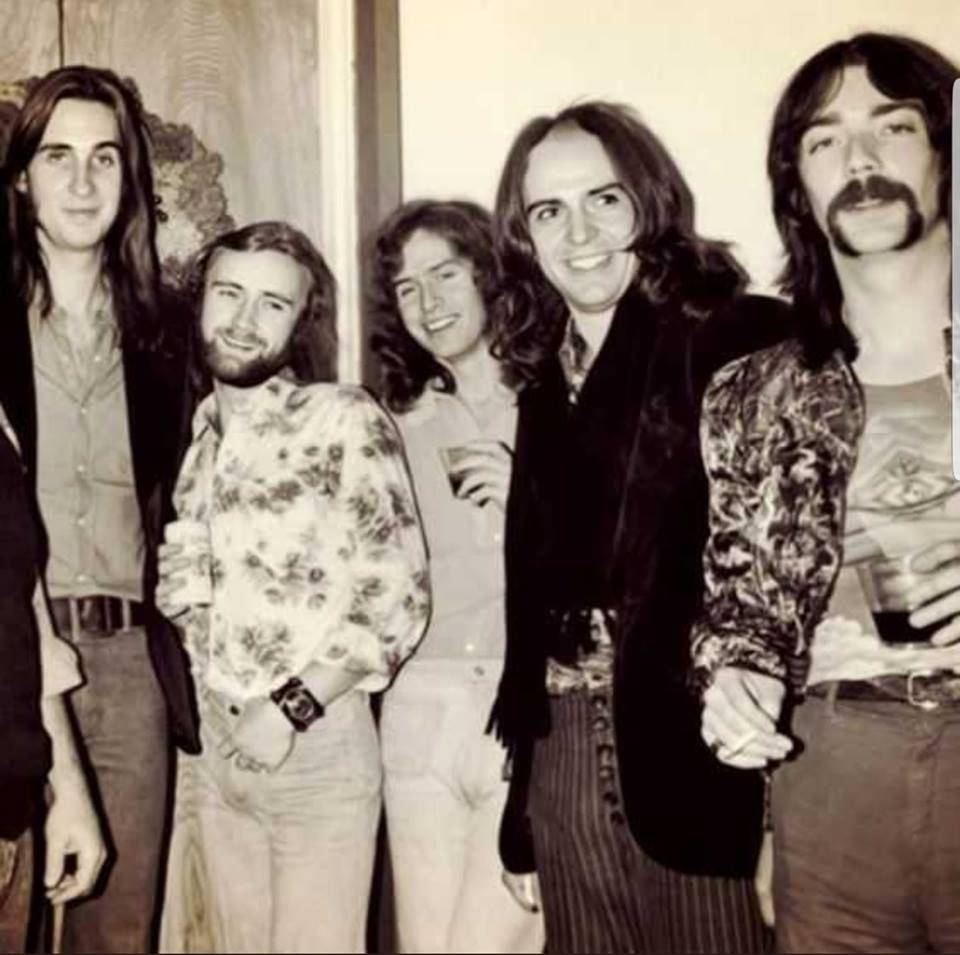
Anthony Phillips, the original lead guitarist with the band and instrumental in defining the guitar sound that stayed with the band all through their career decided that the rock ‘n’ roll lifestyle within a band was not for him. At the same time, the three remaining original members decided that John Mayhew was not the man to be sitting on the drum stool (scratch deep enough, all bands have had their Spinal Tap moments). Replacing Anthony Phillips was not going to be easy, but finally Steve Hackett was found. He was a very earnest and intense young man whose character was in keeping with his guitar playing.
The drum stool was the next problem. After fourteen drummers had a go, a certain young chap by the name of Phil Collins answered a Melody Maker small ad and was drafted into the Genesis ranks straight away. As a child actor, Phil Collins had been in several TV and stage shows, including the part of the Artful Dodger in the London, West End production of Oliver. After Oliver, he drummed in several bands, the last of which had been a group called Flaming Youth. They were just wrapping up in the aftermath of some ill-advised and unsuccessful publicity, so Phil Collins was glad to get the gig with Genesis. But I am sure the other four did not realize what a useful little chap their new drummer was going to be in years to come.

Click here to ramble through Mott the Dog’s archives
So, by early 1971 the re-shaped Genesis was finally gathering some real momentum with growing approval from the press and a steadily increasing hardcore fan base. Each album they released outstripped the last (Nursery Crymes in 1971 and British breakthrough album Foxtrot, which followed in 1972). By now they were out on the road almost consistently wowing their fans with their unique blend of rock music, dexterous skills, and groundbreaking stage show.
A quite remarkable sight on stage they were too. Steve Hackett would play his blistering solos from a seat on the left hand of the stage, while multi-instrumentalist Mike Rutherford would wander the stage with his twin-necked guitar enabling him to play the bass and twelve-string guitar at the same time.
Tony Banks would be on the right-hand side of the stage, almost invisible from the audience as his multi-collection of keyboards completely surrounded him. But the wonderful wall of sound that became the trademark of Genesis left you in no mind that he was there.
Then, of course, out the front was charismatic lead singer Peter Gabriel, who would often go through eight costume changes per concert in an effort to better put across the story of each song. Not for Genesis to play short, sharp little songs; most clocked in at over eight minutes. The only single that Genesis had released at this point was ‘The Knife.’ To accommodate it into the single formula, it had literally been cut in two, with side A being ‘The Knife – part one’ and Side B being ‘The Knife – part two!’ That didn’t exactly endear them to radio play. So Gabriel’s role was crucial in Genesis to keep the audience’s attention. His flute playing also gave the band an extra dimension.

Contributions from our valued guests can be found here. Highly recommended
While the band was on tour promoting Foxtrot, several concerts were recorded to give the fans something while they came off the road to record their next album. (Selling England By The Pound 1973 became their worldwide breakthrough album.)
Five songs were selected for Genesis Live, which rocketed into the charts in Britain, reaching #9. What you got were five epics, all clocking in at over eight minutes; in all forty-five minutes. A lot for the days of vinyl. And although not a whole concert, the running order of the songs worked very well. You can actually make the full concert with other archive recordings released over the years.
First we have two songs off the Foxtrot album, but no problem there as the band had quickly adapted the songs for the road, beefing them up quite considerably. In the case of opener ‘Watcher of the Skies,’ Tony Banks had added an awe-inspiring opening played on the Mellotron and the Moog Synthesizer. By the time Phil Collins comes thundering in, showing his chops on the drums that would soon have him rated as one of the best drummers in rock music (this was way before anybody had thought about putting him out front to sing), you are already caught up in the web Genesis set out to catch you. Tony Bank’s keyboards rather dominate the opener, using the guitars to keep up a strong but slightly slower beat than on the studio album.

without Peter Gabriel seemed unthinkable.
Then Peter Gabriel takes over on ‘Get ’em Out By Friday,’ a tirade against despicable landlords. Gabriel plays all the roles in different voices. With the amount of energy this must have taken up, it is no real surprise that two years later, he stunned the rock world by leaving Genesis when they were on the crest of the wave.
‘The Return of the Giant Hogweed’ was always a favorite of Genesis fans and was probably as close to actual rock ‘n’ roll that Genesis would ever get to; something to actually bang your head to – heavy metal style. ‘The Return of the Giant Hogweed’ was one of two from Nursery Crymes, the other one being ‘The Musical Box.’ This is the album’s centerpiece and shows all the light and dark that the band put into their music.
The mid-section features a guitar solo from Steve Hackett that would lay the template for all progressive rock guitarists to follow. The final climax to this epic, as the band hammer their way home with Gabriel wailing over the top of them all, has often been imitated but never bettered.

After ‘The Musical Box’ has left you exhausted, the band carries on with a track from Trespass, ‘The Knife.’ You can tell by the audience reaction to Gabriel’s announcement of what the band intended to play next that this was another crowd favorite. Expectations were running high. But the band gave an interpretation that exceeded the studio version in astonishing fashion. This must be partly due to the relative new inclusions of Phil Collins and Steve Hackett into the band. Phil Collin’s drums gave the song a much crisper definition, while Hackett’s guitar work reached new heights. A dramatic conclusion to a fine album.
Written by Mott the Dog looking out for Genesis on Pattaya’s Darkside.
Remember to visit and subscribe to Mott’s Facebook page: https://www.facebook.com/groups/1003417143122919/
Click here for Mott’s reviews and links of great music from the past
Mott’s reviews of new releases can be found by clicking here





